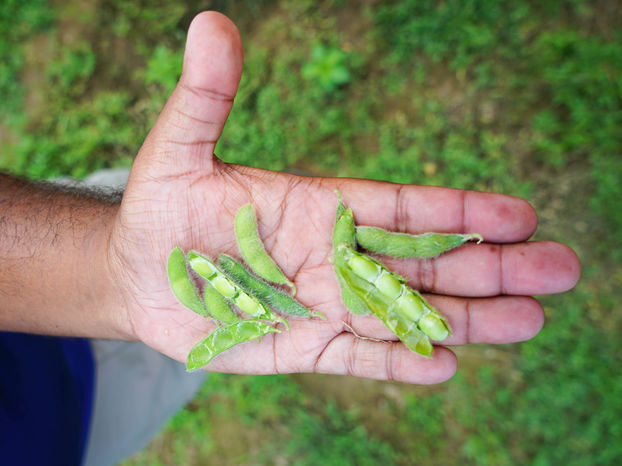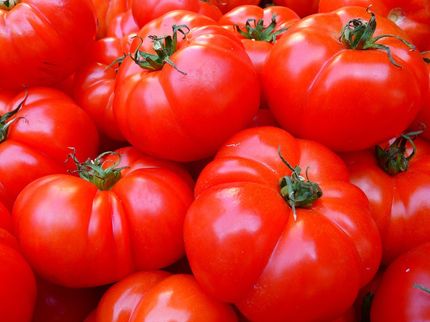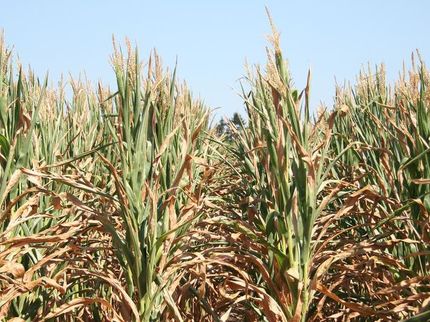Slow and steady wilting makes for better beans…soybeans that is
Tennessee researchers complete study evaluating plant water usage
Unpredictable rain is just one of the many challenges soybean producers face every year. However, certain soybean varieties may be better at tolerating an extended period of dry weather than others. Researchers with the University of Tennessee Institute of agriculture recently published a journal article highlighting which soybeans are better to plant in water-limited areas.

While the soybeans grown under simulated drought conditions still produced soybean pods, as pictured, the soybeans grown with better water management produced much healthier and fruitful beans.
UTIA
Over the course of four growing seasons, researchers tested seventeen Mid-South soybean varieties at the West Tennessee AgResearch and Education Center in Jackson. The soybean varieties were tested under irrigated, rainfed and simulated drought conditions.
”The information gained over time from this research project will help both soybean breeders and producers improve soybean variety selection to manage unpredictable drought conditions during the growing season.” said Avat Shekoofa, crop physiologist at the UTIA Department of Plant Sciences.
The team collected soybean water loss, wilting scores, leaf maintenance, and yield data through six different controlled and field experiments. One of their key findings showed a correlation to water needs in young plants versus mature plants: if a soybean used lots of water during vegetative growth, less water would be available in the soil to support reproductive growth and pod filling when the drought stress occurs.
The researchers also found a wide variation in water loss among soybean varieties. Two of the soybean genotypes did better under the harsh conditions than the rest: ‘Ellis’ and ‘USG Allen.’ Under drought conditions, Ellis and USG Allen yielded 22% to 24% more than fast-wilting varieties.
“Overall, the less the soybean wilts, the better candidate it is for use in water-limited areas,” said Shekoofa, “Soybean varieties expressing slow wilting managed drought stress conditions later in the season well.”
The next step in this research is expanding to include a wider range of soybean maturity groups, as well as those that produce oils that are higher in monosaturated fats, known in the industry as high oleic soybean varieties. Soybean genotypes that show slow-wilting traits are being incorporated into breeding efforts to develop and improve drought-tolerant soybean varieties.
To read more, visit "Genotype identification for a water saving trait: Exploring early stomal closure under soil drying among Mid-South soybeans," published October 16, 2021, in Agronomy Journal.
Researchers included the following UTIA plant scientists: Sam Purdom, graduate student; Avat Shekoofa, crop physiologist; Angela McClure, corn and soybean specialist; Vince Pantalone, plant breeder and geneticist; and Prakash Arelli, crop geneticist.
Through its mission of research, teaching and extension, the University of Tennessee Institute of Agriculture touches lives and provides Real. Life. Solutions. utia.tennessee.edu.
Most read news
Organizations
Other news from the department business & finance

Get the food & beverage industry in your inbox
By submitting this form you agree that LUMITOS AG will send you the newsletter(s) selected above by email. Your data will not be passed on to third parties. Your data will be stored and processed in accordance with our data protection regulations. LUMITOS may contact you by email for the purpose of advertising or market and opinion surveys. You can revoke your consent at any time without giving reasons to LUMITOS AG, Ernst-Augustin-Str. 2, 12489 Berlin, Germany or by e-mail at revoke@lumitos.com with effect for the future. In addition, each email contains a link to unsubscribe from the corresponding newsletter.





























































